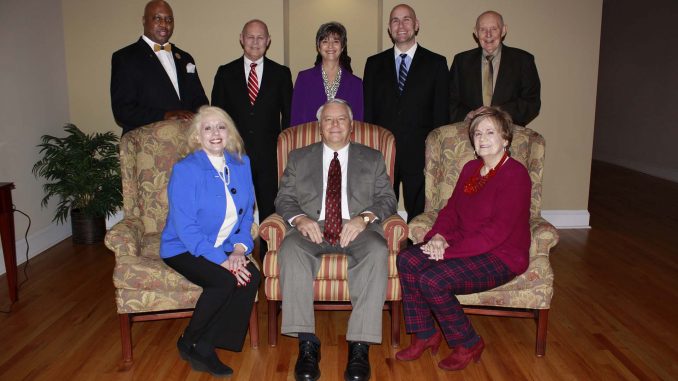
ALBEMARLE — At the March 4 Albemarle City Council meeting, members decided, by a 4-3 vote, to move towards eliminating party labels in city council elections. Dissenting members pushed for the issue to be decided by referendum, but this effort was defeated. Nonpartisan city council elections have been a much-debated, controversial issue for many years in Albemarle.
Councilmember Chris Whitley told Stanly County Journal, “I believe changing the city council to nonpartisan elections will allow more of our community to participate fully in the process. Roughly one-third of the registered voters in the city are unaffiliated and realistically can’t run for council unless they choose a party.”
He also pointed to a fact that many supporters of the measure repeat, that only a handful of city councils have partisan election. “In North Carolina, 99 percent of the municipalities have chosen the nonpartisan model to elect their representatives.”
In statements to Stanly County Journal, Councilmember Dexter Townsend, the only African-American member of the council, said he believes nonpartisan elections could margianalize his community, “My fear is that with the nonpartisan method, with the majority of the African American population, being centrally located within one district, if you have a low voter turnout, which is normal during most municipal elections, coupled with local political trickery where numerous candidates stack a ballot to distort the vote, we could easily be without representation.”
Others, like Councilmember Shirley Lowder, said she thinks the system is good the way it is because knowing someone’s party affiliation helps her determine who to vote for. She also believes it’s a political move to blunt growing Republican influence in Stanly County.
“What is the purpose of it?” asked Councilwoman Lowder during the meeting. “Just so you can say you’re nonpartisan? It’s a political move. What are we doing it for if it’s not political?”
But the effort by Councilmembers Townsend, Lowder and Bramlett to put the issue before the voters in a referendum was blunted by the other four members.
“You disagree with allowing the citizens rather than seven councilmembers an opportunity to decide on a matter of this importance?” Townsend asked Councilmember Chris Whitley during the March 4 meeting.
“I think we were elected to make those kinds of decisions,” Whitley responded. “It’s not like we’re doing something that’s radical and way out there, something crazy. There’s only six or seven other cities in the entire state, and there’s 550-something, that do it this way.”
Councilmember Martha Hughes agreed, saying, “I believe we are elected to make tough decisions at times, and I think this is one of those that we need to make a decision and we need to move on with other business.”
A vote was then taken, passing with a 4-3 majority, to direct staff to draft a resolution changing Albemarle City Council elections to be nonpartisan. With this major step taken, the council then began to debate what the nature of these nonpartisan races would be.
“In my opinion, we’d just be plurality,” said Mayor Pro-Tem Martha Sue Hall. “There’d be no need for a primary. It’d just be a single vote.”
Councilmember Chris Bramlett asked, “Suppose five people run for a seat, and someone gets 21 percent of the vote and the others get 20 percent. Does that 21 percent win?”
When his question was answered in the affirmative, Bramlett said, “I don’t like that at all. I think there ought to be a runoff between the top two.”
Members discussed what the other nine municipalities in the county do, all of which do a simple plurality. This option continued to receive pushback, so the council decided to continue debate on the issue now that the nonpartisan part had been decided.
“Now that we’ve decided we’re going to that,” Bramlett said. “I think we need to give some more thought to how we’re going to run the election. Because I would be very disappointed if we had it where whoever wins out of 10 wins or what have you. I just don’t like that.”
Mayor Ronnie Michael said they would direct staff to bring back all three options (a primary model, a runoff model and a plurality model), as well as the approximate costs of all three.
“We will get all the options and bring them back to you with costs, as best we can,” Mayor Michael said.
